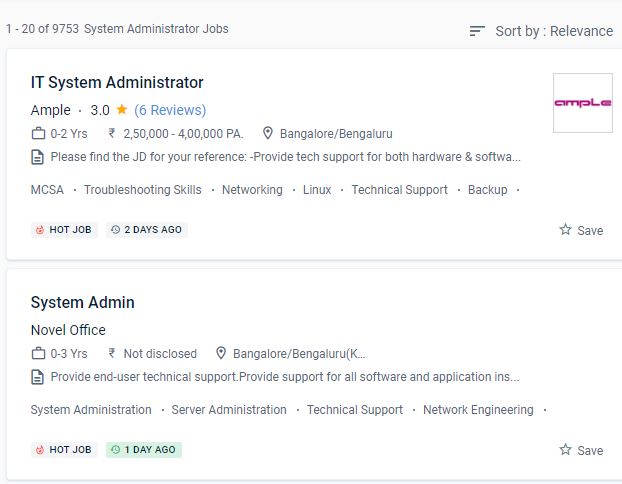System Administration Training by Experts
Our Training Process

System Administration - Syllabus, Fees & Duration
MODULE 1
- System administration introduction, policies, overview, UNIX history and basis
MODULE 2
- File systems and disks
MODULE 3
- Software installation concepts
MODULE 4
- Multi users basics, politics, policies and ethics
MODULE 5
- Automating administrative tasks
MODULE 6
- Networking
MODULE 7
- Backup and disaster recovery
MODULE 8
- DNS
MODULE 9
- SMTP, HTTP
MODULE 10
- Configuration management
MODULE 11
- Distributed computing
MODULE 12
- SNMP, monitoring
MODULE 13
- System security
This syllabus is not final and can be customized as per needs/updates





 Information technology (IT) experts execute the work of systems administration for a company. Network architects have frequently experienced administrators who build data transmission systems from the ground up.
A system administrator's responsibilities include the following:
System administrators are in charge of managing, maintaining, and configuring commercial computer systems on a day-to-day basis.
.
They set up the network card (NIC) so that data can be sent and received appropriately. Circuit boards and CPUs are assembled by computer hardware engineers to produce functional mobile or desktop devices. Some people excel at determining the company's technology needs as information systems managers.
All of the important components of the corporate computing infrastructure are managed by system administrators. Computer scientists research to develop new IT approaches that are both effective and efficient.
For secure, high-speed Internet access, they connect routers, modems, and firewalls.
Information technology (IT) experts execute the work of systems administration for a company. Network architects have frequently experienced administrators who build data transmission systems from the ground up.
A system administrator's responsibilities include the following:
System administrators are in charge of managing, maintaining, and configuring commercial computer systems on a day-to-day basis.
.
They set up the network card (NIC) so that data can be sent and received appropriately. Circuit boards and CPUs are assembled by computer hardware engineers to produce functional mobile or desktop devices. Some people excel at determining the company's technology needs as information systems managers.
All of the important components of the corporate computing infrastructure are managed by system administrators. Computer scientists research to develop new IT approaches that are both effective and efficient.
For secure, high-speed Internet access, they connect routers, modems, and firewalls.



















































































